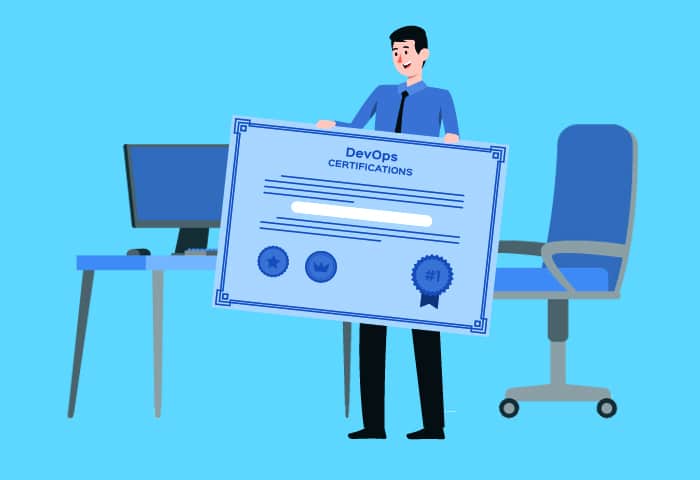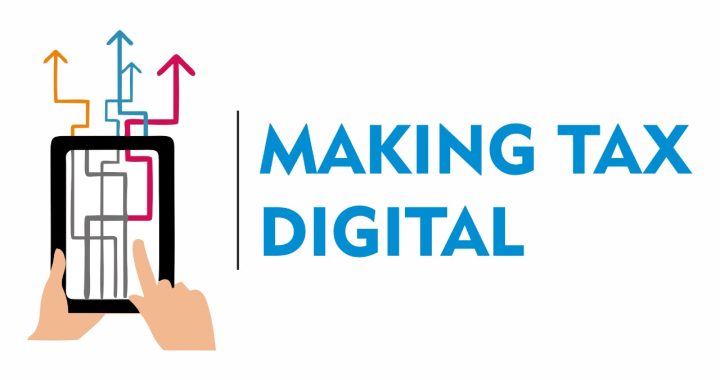
5 Top In-demand DevOps Certifications
The demand for DevOps workers has risen dramatically in recent years in the IT industry. Employees and managers at IT firms find this to be highly valuable, as it aids in the design and development process. Suppliers, both external and internal, as well as developmental consultants, have been shown to profit from the DevOps Foundation accreditation. Therefore, courses like the CKA certification are only going to enhance your résumé and add to your skills. Read on to know more…
What is DevOps?
DevOps is a concept that combines the terms development and operations to describe a collaborative or shared approach to the duties performed by a company’s application development and IT operations teams. DevOps is a mindset that fosters greater communication and collaboration across these teams and others in a company in its broadest sense. It is defined as the use of iterative software automation development, and programmable infrastructure deployment and maintenance in its most basic form. Building trust and harmony between developers and systems administrators, as well as aligning technology projects to business requirements, are all part of it. The software job roles, delivery chain, IT tools, services, and best practices can all be influenced by DevOps.
Benefits of achieving DevOps Certification
The DevOps Certification offers a lot of benefits and they are manifold. Let’s discuss some of them:
1. Better job opportunities
DevOps is a relatively new concept in the IT world, and more companies are adopting DevOps methods and techniques. The demand for DevOps-certified professionals outnumbers the supply of required specialists by a significant margin. IT professionals can take advantage of the massive shortage of highly qualified individuals by obtaining a DevOps certification, which validates the desired skill set. This will provide and guarantee a considerably wider range of work opportunities.
2. Improved skills and knowledge
The main notion of DevOps is based on completely new decision-making and cognitive processes. DevOps has a slew of technical and financial advantages that may be adopted in a business after little training. DevOps is built on the foundations of experts working in cross-functional teams.
3. Increased salary
DevOps practitioners’ remuneration is skyrocketing due to the rapid adoption of DevOps best practices in enterprises and their execution in the aforementioned organizations.
According to industry experts around the world, this trend is continuous and durable. In the IT industry, DevOps specialists are among the highest-paid.
4. Increased productivity and effectiveness
Employees and staff in traditional IT workplaces are affected by downtime due to waiting for other employees or staff members, as well as other software and related concerns. The fundamental goal of an IT worker at work is to be productive for the majority of the time he or she is there. This can be accomplished by reducing the amount of time spent waiting for other employees or software products, as well as eliminating the time-consuming and unsatisfactory aspects of the job process. This will improve the efficiency of the work and considerably increase the worth of the company and its employees.
What are the top DevOps certifications?
The courses that open up a floodgate of career opportunities for you and enable you to walk away with a big and hefty income at the end of every month are the way to go. Here is a list of the top five certifications that will help you accomplish so. The following are the top five DevOps certifications in demand among IT professionals:
1. Docker-certified associate
The certification enhances your qualities and skills as a seasoned Docker practitioner. It serves as a benchmark for Docker expertise in the real world and across the industry. You are probably already familiar with Docker, a critical DevOps tool. It is essentially a group of the platform as a service (PaaS) products and provides applications in containers using OS-level virtualization. You will be able to learn Docker and its function in the DevOps lifecycle, create images, swarms, networks, volumes, and containers, explain client-server authentication and client bundles in Docker security, and much more after completing your Docker Associate certification.
2. Certified Kubernetes administrator
Kubernetes is a container orchestration system that is open-source and used for automating the deployment, administration, and scaling of computer applications. The Cloud Native Computing Foundation now maintains it, which was initially designed by Google. Kubernetes is the most widely used container orchestration platform in the market. The Certified Kubernetes Administrator certification covers all aspects of application lifecycle installation, management, validation, configuration, scheduling, security, storage, cluster maintenance, networking core concepts, and troubleshooting, as well as projects to support you become DevOps-ready.
3. Microsoft-certified Azure DevOps engineer expert
The Azure-certified DevOps engineer course emphasizes practical experience with DevOps technology and tools, as well as knowledge of Agile and DevOps processes. The Microsoft Certified Azure DevOps experts are in charge of connecting processes, technology, and people to provide valuable services and products that fulfill the needs of the end-user and company goals on a continual basis. The Microsoft-certified DevOps engineer expert certification and training is a role-based certification that reflects the job responsibility as an Azure DevOps engineer and indicates that you have the necessary knowledge and abilities to function in that role and capacity.
4. Google-certified professional cloud DevOps Engineer
A professional cloud DevOps engineer is responsible for ensuring that development processes are efficient and service dependability and delivery pace are balanced. They know how to develop pipelines for software delivery, manage and learn from various incidents, and install and monitor services using Google Cloud Platform. The purpose of this certification is to verify technical skills linked to the role. The best way to prepare for the exam is to get some hands-on experience.
5. Hashicorp-certified Terraform associate DevOps certification
In the last few years, Hashicorp Terraform has gained a lot of traction. Terraform has proven its worth as a DevOps tool to build declarative infrastructure as code (IaC) that automates the deployment and management of cloud infrastructure for single or more clouds. This certification teaches how to apply Terraform ideas to enterprise scenarios, such as what features are available and how to use them in Terraform-based enterprise infrastructure as code (IaC) and its deployment scenarios.
A degree in computer science or a comparable discipline that includes coding, QA testing, and IT infrastructure components is required for most entry-level DevOps roles. Advanced degrees in systems architecture and software design may be required for higher-level roles. People on this professional path should also read DevOps books to increase their knowledge, and communicate with other members of the community via blogs and conferences. As with codified frameworks like ITIL, there is no industry-wide recognized DevOps certification.


























